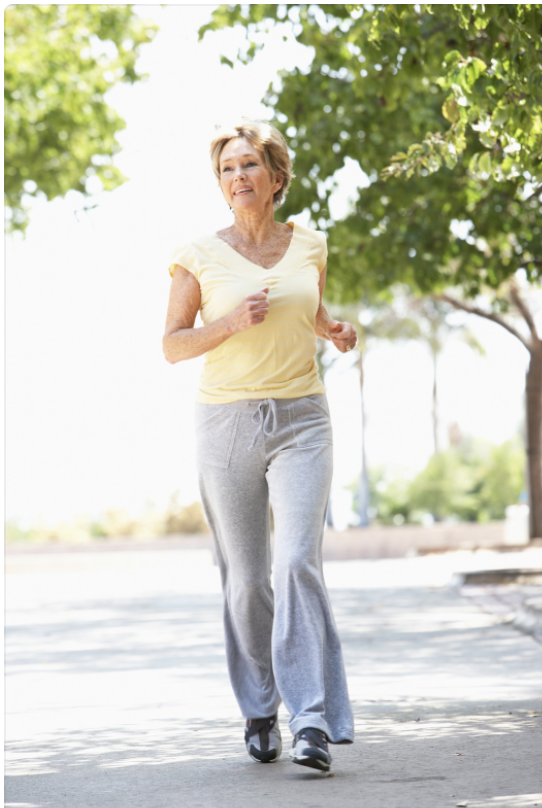Fast Track: For Better Health, Walk Faster
April 7, 2021

If there’s one thing we’ve promoted, especially as an antidote to the perils of the pandemic, it’s to go outside and take a walk. Along with extolling the value of walking for your physical, emotional, and mental health, we’ve recommended some basic items to enhance the comfort of your walks. And now comes word that not only are there innumerable benefits to walking, but the pace of your walking may in fact make a big difference: It seems the faster you walk, and get your heart rate up, the more bang for the buck you’ll get in terms of better physical and cognitive outcomes.
According to an article by Gretchen Reynolds in The New York Times, a new study in the Journal of Alzheimer’s Disease demonstrates that brisk walking can improve brain health and thinking skills in older adults diagnosed with mild cognitive impairment. In this study, participants who had previously been diagnosed with mild cognitive impairment were put on an exercise regimen of brisk walking that increased their heart rate and breathing and ultimately led to greater blood flow to and throughout the brain. When these participants were then given cognitive tests, their scores on such executive functions as planning and decision-making improved, likely due to better brain blood flow.
So the question is how do you beef up your walking speed? Physical therapist and performance coach Doug Kelsey has some ideas about what mistakes we make when walking and how to ramp things up. Among his recommendations? You can start slow with intermittent bursts of speed, you can use your arms to get yourself moving more forcefully, and ultimately you should get at least half of your walk to a speed that verges on the brink of a jog. He declares that people who walk more briskly appear to live longer than those who just take in a leisurely stroll. To underscore this, we do know that during COVID, those considered “slow walkers” have been four times more likely to die of COVID than those who walk more briskly (in this case, walking slowly appears to be an indicator of how healthy you are). One other piece of advice? If you grab a partner to walk with you, be careful whom you select. A new study out of Purdue University found that walking with a partner might slow you down, especially if you hold hands. While the love and affection that accompany a slow stroll may be wonderful, when you’re looking at vigorous exercise, you’d be better off alone or with a partner whose speed matches your own. And if you’d like a video guide to help you speed up your step, rev up your energy and click here. Or want some music to pump up your gait? Grab your headphones and take a look and listen here.
And if all this talk of walking has you excited to get out and move, take a look at a newly published guide from Healthline about the benefits (and challenges) of taking on a 10-mile-a-day walk!







